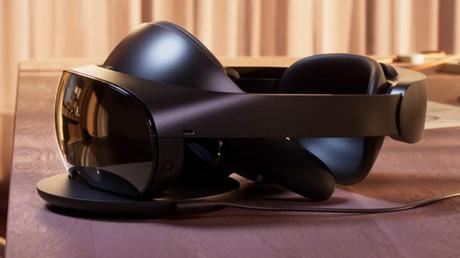
Meta, the new name of the company that owns Facebook and Instagram, announced its ambitious plan to help build the immersive internet of the future metaverse in October of last year. Since then, the stock price of the social media giant has dropped by 60%, its growth has stopped, and buzz about the metaverse has gone up and down, which has caused backlash.
Meta still wants to reach its vision, despite all of this. During today’s keynote speech at the annual Meta Connect conference, the company showed off its latest innovations for the metaverse, including a powerful new virtual reality (VR) headset that is another step toward more complex online worlds and interactions.
Some Web3 developers worried that Meta’s part in building the metaverse would lead to another “walled garden” or closed ecosystem. But the company’s messages have slowly changed to suggest a different way of doing things. Today, Mark Zuckerberg, co-founder and CEO of Facebook, made his clearest statement yet about how an open metaverse could work.
Zuckerberg talked about the history of open and closed ecosystems in the past. He said that “closed ecosystems emphasize tight control and integration” and that, in the end, these platforms get most of the value that is made. Zuckerberg, on the other hand, made it clear that Meta takes a different approach to the metaverse.
“I am sure that everyone will benefit from an open, interoperable metaverse made by a wide range of developers and companies,” he said.
Even so, this is not the same as saying for sure that Facebook’s metaverse will be based on blockchain technology, will work with NFT assets built on public blockchain platforms like Ethereum and Solana, and will support cryptocurrencies. But this shows that Meta is not the only or main person who made the metaverse.
Nick Clegg, Meta’s President of Global Affairs, said similar things in an essay he wrote in May. In a podcast interview at the time, Zuckerberg also said that he is open to interoperability in the metaverse, but he didn’t say what the company’s plans are in this area.
Today, Zuckerberg talked about how avatar customizations can work with each other. However, this may only mean that clothing and accessories can be moved to other platforms that use Meta’s avatar technology, not that they can be used with all NFT-based avatars.
In the past few months, Meta has started to support NFT collectibles from top platforms like Ethereum, Polygon, and Flow by adding Facebook and Instagram integrations that let users show their NFT assets to their friends and followers. Will Meta use the existing NFT ecosystem as part of the development of its metaverse platform?
Many people who work on Web3 have doubts.
Last year, Yat Siu of Animoca Brands, a major investor in the metaverse, told Decrypt that tech giants like Facebook and Tencent pose a “threat” to an open, interoperable metaverse. Other people have said the same thing.
Zuckerberg’s comments today don’t say for sure that Meta plans to work with Web3 developers and fully adopt open-source technology, but they are the clearest sign so far that the Facebook company is trying to make a big change in how it designs online platforms.
Meta’s latest moves

During the rest of its keynote address, Meta made a number of announcements that showed how hardware and software were still getting better and moving towards its vision of the metaverse.
On the hardware side, Meta showed off the Quest Pro, a VR headset for business users and professionals that is much more powerful than the Quest. The Meta Quest 2 headset for consumers costs $400, but the Meta Quest Pro will cost $1,500 and have a lot more graphic processing power to make virtual reality experiences feel more real.
But it is more than just a headset for VR. The device for mixed reality will also work with augmented reality and be able to add digital content to the user’s view of the real world. It uses more precise external cameras and sensors that look inward to make this feature work. For example, sensors that look inward can recreate the user’s facial expressions and allow eye tracking.
Meta’s work on the metaverse is not limited to hardware, though. The company is also building the software and infrastructure it will need to launch its planned unified online 3D platform for work, play, socializing, shopping, and more in the future.
Meta said today that the company’s Horizon Worlds VR app will soon be available on the web, so people can use it on their computers or touch devices. This could mean that Meta plans to turn its current VR experience into a world that can be played on multiple platforms and will eventually look like the demo shown last year.
Even so, this announcement comes after a report came out saying that Horizon Worlds has a lot of bugs and quality problems and that Meta employees don’t use the platform very often. It could take a lot of work to not only improve the experience but also make it work on other devices.
Meta is also making avatars that can be used in all of its apps, like Horizon Worlds, Instagram, and WhatsApp, that are more detailed. They will even get legs by 2023. At the moment, Meta’s Horizon Worlds avatars are just floating torsos. However, the company is working on artificial intelligence technology that will use predictive algorithms to make digital legs.
Meta also announced a big new partnership with Microsoft, which will pay off in a number of important ways right away.
Microsoft will add immersive versions of Windows, Teams, Office, and Xbox Game Pass to the Quest VR platform. Teams will also get Meta’s avatar system. This kind of cross-compatibility could mean that the metaverse will grow in the future. Meta has already shown how the metaverse could be used to work together remotely across virtual screens.
Even though some people are against Meta’s new metaverse projects, it’s clear from today’s presentation that Meta won’t give up. Mark Zuckerberg said again in an interview with The Verge that it will be a careful process of building and investing. He called it a “long-term journey” that could take several years to mature.
During the keynote, Meta also hinted at future technologies for the metaverse, such as photo-realistic 3D avatars made from smartphone scans and interfaces and control systems based on small finger movements. These parts are still just prototypes, so they might not be in the final products.
Meta’s plan for the metaverse might not be finished for many years, but today’s keynote gave important updates on the technology and may have changed how the social media company works.
Leave this field empty if you're human: